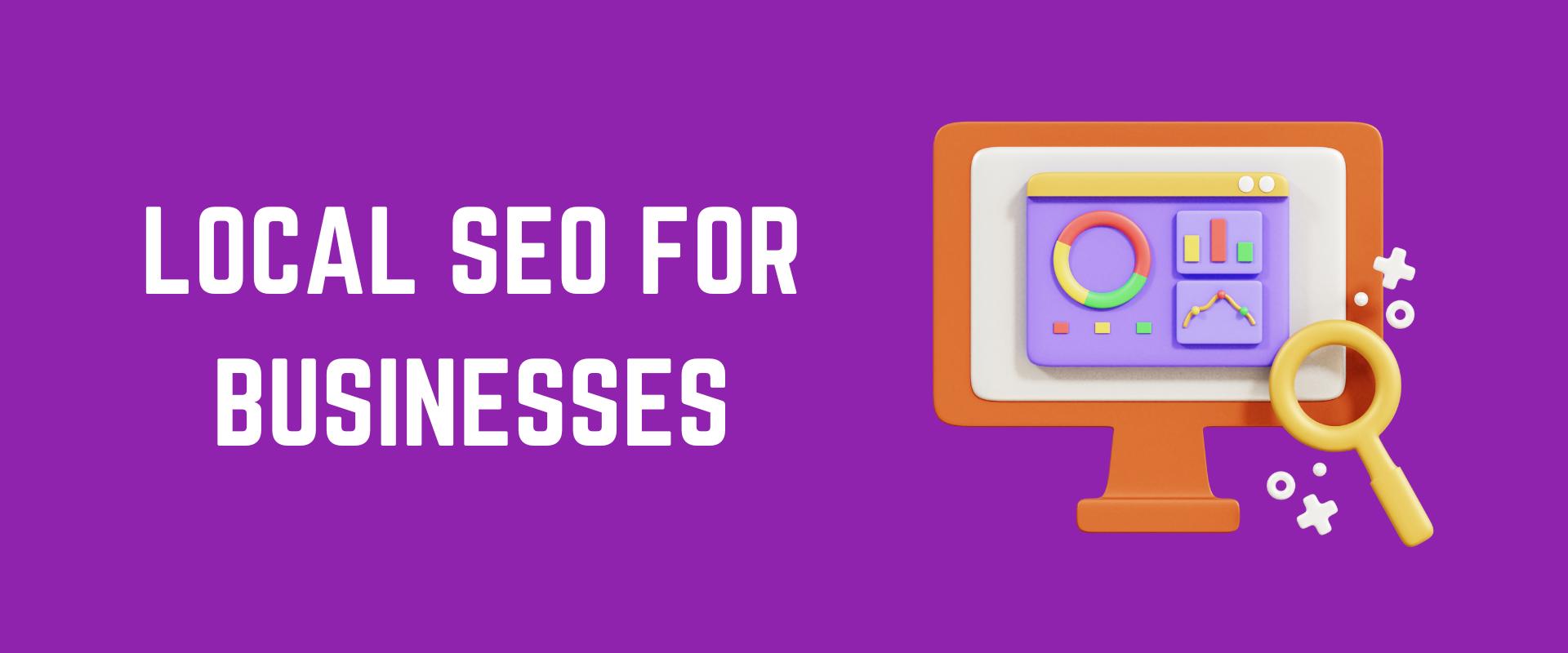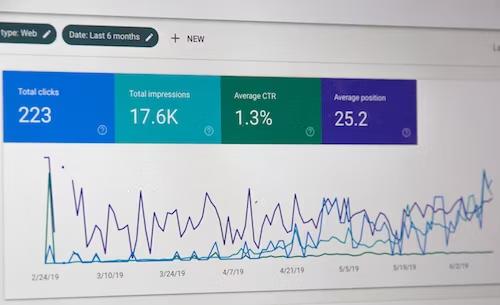How Local SEO Success Can Benefit Your Business in 2024

In this digital era it is crucial for businesses, especially startups and local enterprises, to establish a strong online presence to attract customers nearby. Local SEO (Search Engine Optimization) is a powerful tool that can significantly benefit your business by increasing your visibility in local search results.
Keep reading our guide as we shed light on the world of local SEO, exploring its importance, strategies, and how it can drive success for your business.
Table of Contents
- What Is local SEO?
- How Does Local SEO Work?
- The Significance of Local SEO
- Key Strategies for Local SEO Success
- Local SEO Tools and Resources
- Creating Your Local SEO Strategy
- Measuring Local SEO Success
- Local SEO Success Tips for Startups and Small Businesses
- The Bottom Line
- Partner With CDP: Professional SEO Services Starting From Only $249/page!
What Is local SEO?

Local SEO (search engine optimization) is the process of optimizing your website and online presence so that you rank higher in search engine results pages (SERPs) for local searches.
For example, if you own a coffee shop in Seattle, you would want to optimize your website so that it ranks higher when people search for "coffee shops near me" or "best coffee shops in Seattle."
Local SEO is especially important for startups and local businesses because it helps them to reach the people who are most likely to become customers. When people are searching for local businesses, they are already interested in what you have to offer. By ranking higher in local SERPs, you can increase your visibility and attract more customers to your business that are more likely to convert.
How Does Local SEO Work?
Local SEO works by optimizing various aspects of your online presence to make your business more attractive to search engines. This includes on-page and off-page optimization, technical SEO, and other strategies designed to tell search engines who you are, what you do, and where you are located.
When search engines crawl your website and online listings, they gather information about your business. This data helps search engines determine your relevance to specific local searches. The more accurate, consistent, and comprehensive this information is, the better your chances of ranking well in local search results.
Ready to get custom, high-quality SEO content for your business website?
CDP’s professional content writing experts can craft tailored content to elevate your business presence right away!
The Significance of Local SEO
With a well-executed local SEO campaign, your business can appear in the coveted "local pack" or the top search results, giving you an edge over competitors and attracting nearby customers who are actively seeking your products or services.
In essence, local SEO acts as a digital billboard, drawing in potential customers and increasing your revenue.
Local SEO is vital for several reasons:
Increased Visibility
When your business appears in local search results, you're more likely to be discovered by potential customers in your area.
Relevance
Local SEO ensures that your business is visible to users who are actively seeking products or services you offer in their vicinity.
Credibility
Ranking well in local search results can build trust with consumers, as search engines often associate high rankings with authority and reliability.
Mobile Optimization
With the surge in mobile search, local SEO has become more vital than ever, as users often search for nearby businesses on their smartphones.
Cost-Effective Marketing
Local SEO is a cost-effective marketing strategy compared to traditional advertising methods.
Competitive Advantage
It allows you to compete with larger businesses, as local search results are often less competitive.
Direct Conversions
Local SEO can lead to direct conversions and increased foot traffic to your physical location.
Key Strategies for Local SEO Success

Successful local SEO is the result of a combination of factors, strategies, and best practices. These can be categorized into various aspects of SEO.
Here are the primary areas to focus on:
On-Page SEO
- Keyword Optimization
Use relevant keywords in your website content, meta tags, and image alt tags. Include location-specific keywords to target local customers effectively.
- Content Quality
Create high-quality, informative, and engaging content that addresses the needs of your local audience.
- Title Tags and Meta Descriptions
Craft compelling and keyword-rich title tags and meta descriptions to improve click-through rates from search results.
- NAP Information
Ensure your business's name, current address and number (NAP) are consistent and prominently displayed on your website.
- Local Schema Markup
Use schema markup to give search engines organized information about your business, which will improve how easily you can be found in search results.
- Mobile-Friendly Design
Optimize your website for mobile devices, as mobile search is prevalent in local queries.
Off-Page SEO
- Link Building
Acquire high-quality, local backlinks from reputable websites and local directories.
- Online Reviews
Encourage customers to leave positive reviews on platforms like Google My Business and Yelp. Respond to reviews, both positive and negative, to demonstrate your commitment to customer satisfaction.
- Social Signals
Maintain an active presence on social media platforms, connecting with local customers and sharing relevant content.
- Local Citations
Ensure your business information is consistent across online directories, business listings, and data aggregators. Inconsistent data can negatively impact your local SEO.
Looking for some inspiration?
Don’t forget to check out: What Are Lead Magnets? How to Get Awesome Results
Technical SEO
- Website Speed
Optimize your website for quick loading, as slow websites can deter visitors.
- SSL Certificate
Secure your website with an SSL certificate to enhance trust and security for users.
- Mobile Optimization
Implement a responsive design that works seamlessly on all devices.
- XML Sitemaps
Create and submit XML sitemaps to search engines to help them index your site effectively.
- Structured Data
Utilize structured data markup to provide search engines with additional information about your business.
Content Marketing

- Blogging
Regularly publish blog posts that address local topics, trends, and customer concerns.
- Local Events
Create content around local events, news, and activities to engage your community.
- Guest Posts
Contribute guest posts to local blogs and publications to build authority and gain backlinks.
- Video Marketing
Use video to showcase your products or services and tell your business's story.
Online Reviews
- Review Management
Actively manage your online reviews, encouraging positive feedback and responding to negative reviews in a professional and constructive manner.
- Review Generation
Develop strategies to generate more reviews from satisfied customers.
Mobile Optimization
- Mobile-First Design
Ensure your website is designed with mobile users in mind. Use responsive design and optimize your site's speed for mobile devices.
- Local Mobile SEO
Optimize for mobile search with location-based keywords and mobile-specific tactics.
Local SEO Tools and Resources
To succeed in local SEO, you'll need the right tools and resources. Here are some essential ones that can significantly benefit your local SEO efforts:
Google My Business

Google My Business (GMB) is a fundamental tool for local SEO. It allows you to manage your business's online presence on Google, including search results and Google Maps. Some features include:
- Creating and managing your business listing.
- Monitoring and responding to customer reviews.
- Posting updates and offers to your listing.
- Accessing insights and analytics.
Local Business Directories
Local business directories like Yelp, Yellow Pages, and TripAdvisor play a crucial role in local SEO. Ensure your business is listed accurately on these platforms, and consider seeking reviews from customers on these sites.
Keyword Research Tools
Keyword research is the cornerstone of any SEO strategy. Tools like Google Keyword Planner, SEMrush, and Moz's Keyword Explorer can help you identify relevant keywords and phrases for your local audience.
Analytics and Tracking Tools
Use tools like Google Analytics and Google Search Console to monitor website traffic and performance. These tools provide valuable data on user behavior, keyword rankings, and more.
Competitor Analysis Tools
Tools like SEMrush and Ahrefs can help you spy on your competitors. Analyzing their strategies can provide insights into what works and what doesn't in your local market.
Creating Your Local SEO Strategy

Now that you have a foundational understanding of local SEO and the tools at your disposal, let's explore how to create a local SEO strategy for your business.
Setting Clear Goals
Before you dive into optimizing your online presence, it's crucial to establish clear goals for your local SEO strategy. These goals could include:
- Increasing website traffic.
- Boosting online visibility in local search results.
- Generating leads or conversions.
- Enhancing brand awareness within your local community.
- Improving customer engagement and loyalty.
Your goals will guide your strategy and provide a benchmark for measuring success.
Keyword Research and Selection
Keyword research is the bedrock of local SEO. Start by identifying relevant keywords that potential customers in your area might use when searching for products or services like yours. Focus on a combination of general keywords and location-specific keywords.
For instance, if you operate a pizzeria in Chicago, consider incorporating "near me" keywords such as "pizza delivery near me," "best pizza near me," and "deep-dish pizza near me." These "near me" keywords specifically target local customers actively searching for pizza options in their proximity, increasing the likelihood of your business appearing in relevant local search results.
By incorporating both general and location-specific keywords, you can significantly enhance your local SEO strategy and connect with nearby customers effectively.
On-Page Optimization
Once you have your keywords, incorporate them into your website's content, meta tags, and headers. Ensure that your NAP information is accurate and prominently displayed on your website. Additionally, use schema markup to provide structured data to search engines.
Off-Page Optimization
Start building a backlink profile by acquiring high-quality, relevant backlinks from local websites and directories. Encourage satisfied customers to leave reviews on Google My Business, Yelp, and other relevant review platforms.
Monitoring and Adjusting Your Strategy
Regularly monitor the performance of your local SEO strategy using tools like Google Analytics, Google Search Console, and other analytics tools. Pay attention to key performance indicators (KPIs) such as website traffic, rankings, and conversions.
If you're not achieving your goals, be prepared to adjust your strategy. SEO is an ongoing process, and it often requires fine-tuning to stay effective. As you make adjustments, continue to monitor your progress and adapt as necessary.
Measuring Local SEO Success

To determine the success of your local SEO efforts, you need to establish KPIs and closely monitor them. Here are some key performance indicators to consider:
Organic Traffic: Monitor the number of visitors coming to your website through organic search results.
Keyword Rankings: Keep track of your rankings for relevant keywords in local search results.
Conversion Rate: Measure the percentage of website visitors who take desired actions, such as making a purchase, filling out a contact form, or signing up for a newsletter.
Click-Through Rate (CTR): Analyze the CTR of your website's listings in local search results.
Online Reviews: Monitor the quantity and quality of online reviews, aiming for an increase in positive reviews and a decrease in negative ones.
Customer Engagement: Observe the level of customer engagement on your website and social media profiles.
Local Pack Placement: Measure your visibility in the local pack, which often appears at the top of local search results.
Return on Investment (ROI): Calculate the ROI of your local SEO efforts by comparing the costs of implementation to the revenue generated.
Traffic Sources: Understand where your website traffic is coming from, whether it's from search engines, social media, or other channels.
Tracking these KPIs will help you gauge the success of your local SEO strategy and make data-driven decisions to improve your performance.
Local SEO Success Tips for Startups and Small Businesses

Here are some specific tips for startups and local businesses that are trying to improve their local SEO:
Tip # 1 - Focus on your target audience
Who are you trying to reach with your local SEO efforts? Once you know who your target audience is, you can tailor your content and keywords to reach them more effectively.
Tip # 2 - Use long-tail keywords
Long-tail keywords are defined as keywords that are more unique and less competitive as compared to short-tail keywords. For example, instead of targeting the keyword "plumber," you could target the keyword "emergency plumber near me."
Tip # 3 - Optimize your website for mobile devices
More and more people are using their smartphones and tablets to search for local businesses. Make sure that your website is mobile-friendly so that people can easily find you on their mobile devices.
Tip # 4 - Be active on social media
Social media is a great way to connect with your local community and promote your business. Make sure to post regularly on social media and share relevant content with your followers.
Tip # 5 - Get involved in your local community
Sponsor local events, donate to local charities, and participate in community organizations. Getting involved in your local community is a great way to build brand awareness and improve your local SEO.
Stay Up to Date with the Latest News!
Don’t forget to check out: Unlocking the Power of AI in Content Creation: Trends and Insights
The Bottom Line
Through local SEO, your business becomes more than just a place to buy things; it becomes a symbol of reliability and authenticity. Local SEO becomes the foundation for building a strong local brand. When you invest in local SEO, you're essentially shaping an online image that shows how much you care about your community.
As small and medium businesses unlock the full potential of local SEO, they'll see their business not only growing but also thriving, while earning the attention and trust of nearby customers. It goes beyond just making more sales and focuses on creating a strong, local community where your business is a trusted part of the neighborhood.
Partner With CDP: Professional SEO Services at Affordable Rates!
At Content Development Pros (CDP), we specialize in assisting businesses in achieving SEO success. With a track record of placing thousands of businesses on the top tier of Google and other search engines through our content-focused SEO services, it's time to see what we can do for you.
Let's take your business to the top!
Our services include:
- SEO Keywords Research
- On-Page SEO
- Link Building
- Small Business SEO
- Google Maps Optimization
- SEO Blogs & Articles
